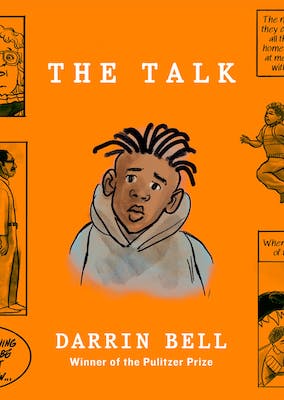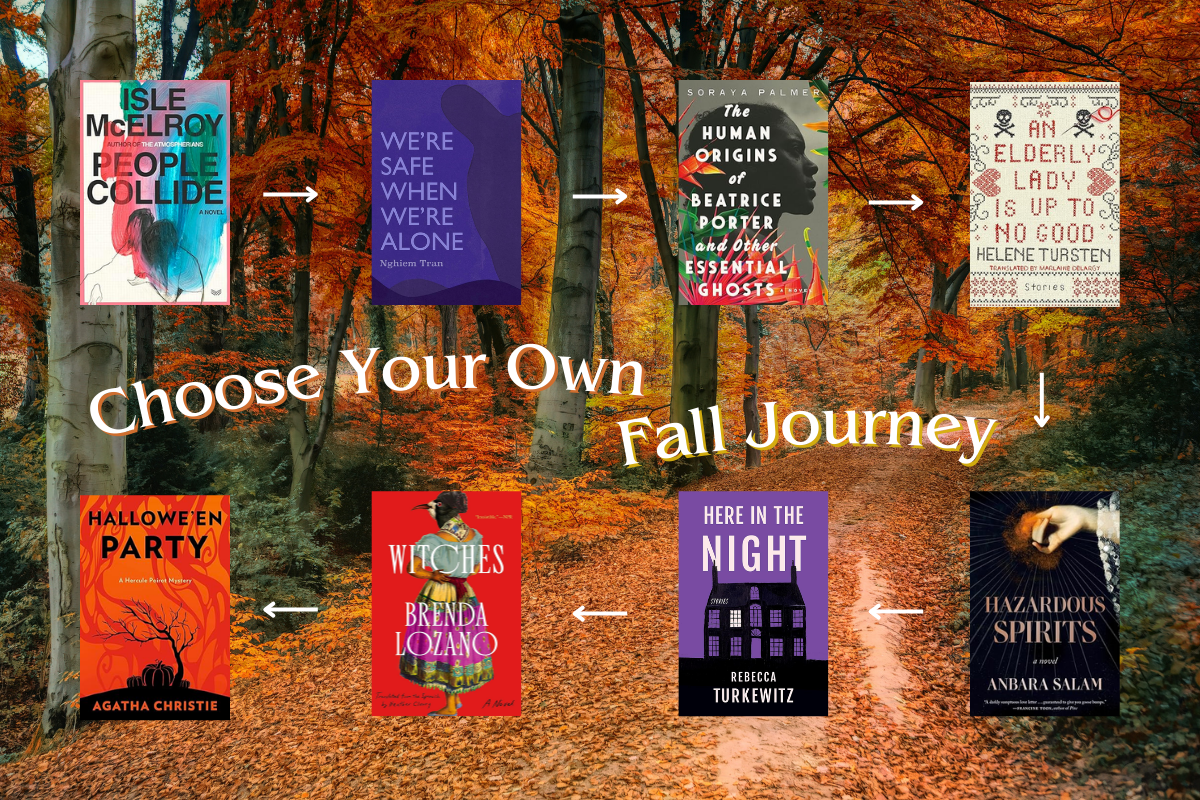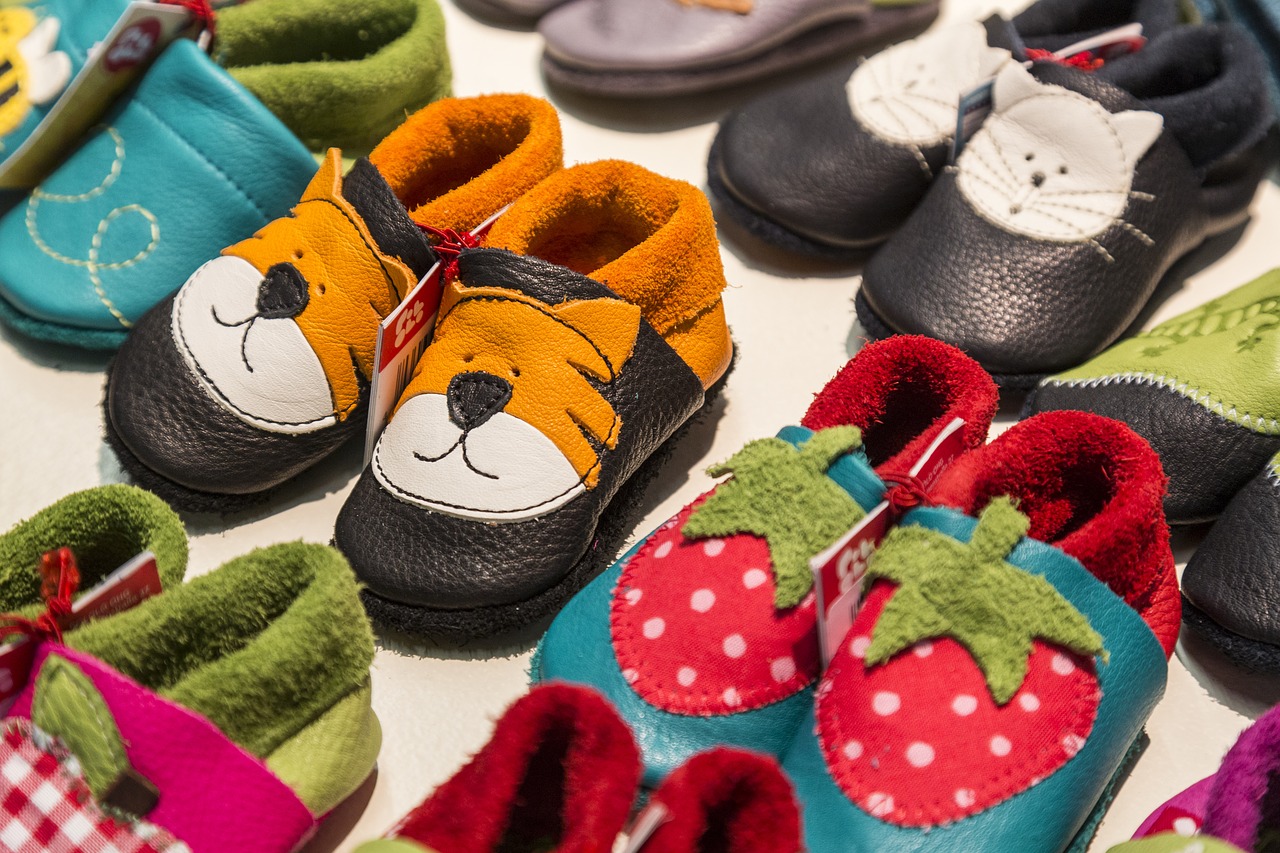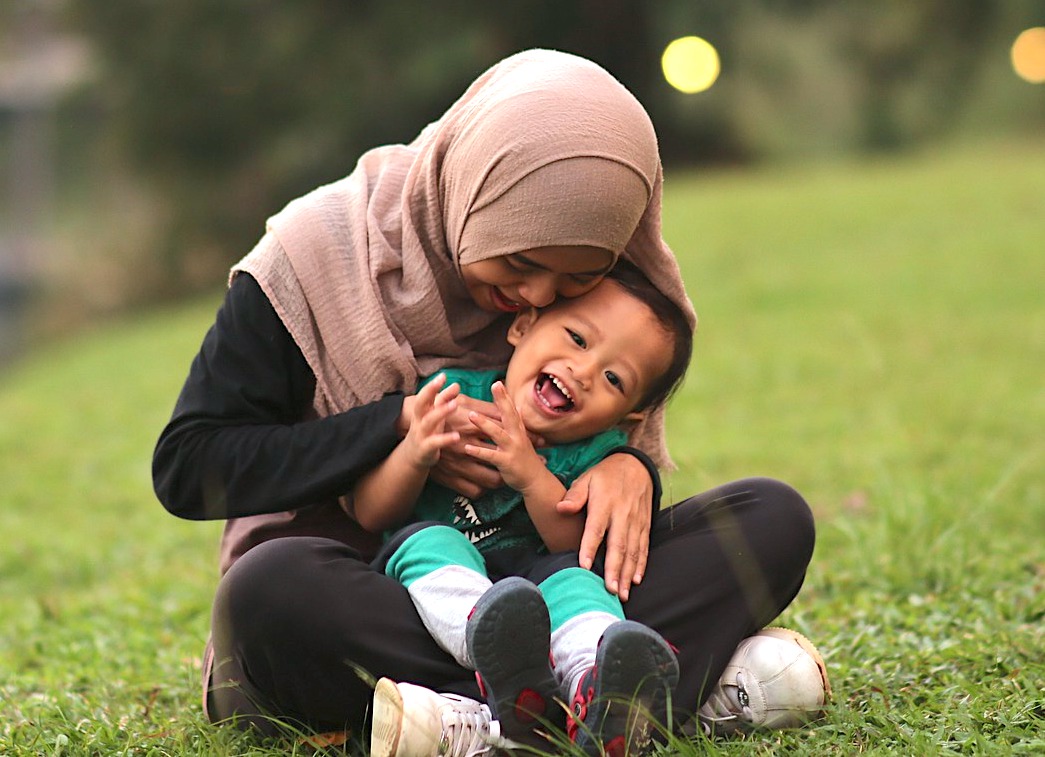Interviews
A Black Father Illustrated the Importance of “The Talk” in His Graphic Memoir
Pulitzer prize-winner Darrin Bell on explaining racism to his son
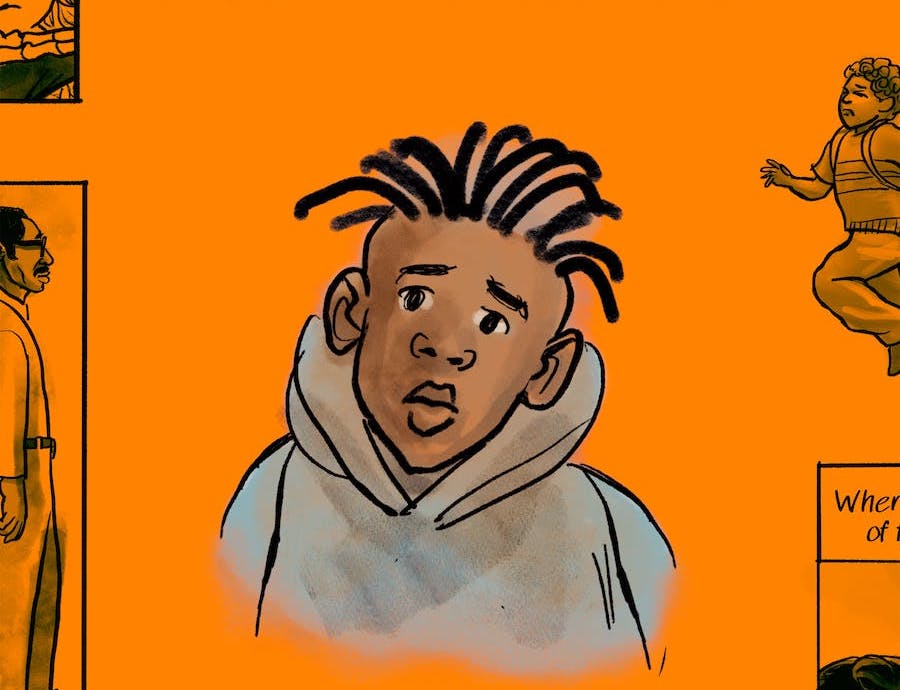
Darrin Bell didn’t set out to write his much anticipated graphic memoir, The Talk. He’d initially sold another project delving into the lives of three generations of men in his family, all descendants of an enslaved man named Addison Bell, in a two book deal to Henry Holt and Co. But as he was working on the original project, George Floyd was murdered and the Black Lives Matter protests began. “My editor Retha called me,” Bell explained, “And she apologized and said, ‘I think maybe we should put this book on the backburner and do another book that deals with what’s happening right now with George Floyd.’” We talked for about an hour and over the course of that conversation, she asked me for incidents in my life that could have gone a bad way, incidents where I experienced racism. Toward the end of the conversation, I told her, “You know, it’s funny, I was six when my mom gave me the talk, and just now my six-year-old son asked me ‘who’s George Floyd?’ and I don’t know if he’s ready to have the talk.” My editor said, “That’s the book.”
Bell took all the memories of growing up half-Black and half-Jewish in California that came up in that conversation, which he viewed as puzzle pieces, “Because I knew there was a reason why I brought all these things up in that conversation. I just had to figure out what that reason was along the way.” The Talk explores key events in Bell’s life where he experienced racism personally or witnessed what was happening nationally, tracing his journey from when he received the talk from his own mother, to experiences in school and college, to becoming the first African American creator to have comic strips syndicated nationally, to when he received the Pulitzer prize, making sure to recount incidents when he too felt complicit in contributing to the racial status quo. “It was almost like a two and a half year therapy session,” Bell told me. “I think that’s why the book feels so honest. Because I was actually going through it while I was writing it.”
Deirdre Sugiuchi: It was really interesting to read The Talk and watch your evolution regarding racism, and learning different messages that you’ve gotten from the different sides of your family regarding race and processing it and developing this awareness. A lot of your references are integral to the Gen X experience. We’re a smaller generation but our perspective is integral to understanding America today. Can you discuss why, as Gen X writers, it’s important to share our perspectives and experiences?
Darrin Bell: At this point in history, we are the children of the generation that’s starting to die out right now. We are the parents of the generation that’s coming of age. We are the middle link in a chain, the link that people are not paying attention to. We’re like the hub of a wheel. We grew up observing our parents congratulating themselves for being part of the civil rights generation and the counterculture, Woodstock. But we also saw their hypocrisy. We can also see the narcissism of our children’s generation, the one that’s raised with the technologies that we created, that we were dumb enough to create, social media, especially.
DS: I thought your book did a great job of explaining the importance of the protests that arose in response to the police beating Rodney King. You traced the initial undoing of affirmative action in California via Prop 209. You revisited how thousands of Black voters were expunged in 2000 in Florida, making us think about that impact. You talked about the prejudice your parents experienced just to date. You laid it out—this is how we got here.
DB: Like any younger generation, they think the world is the way it is because that’s just the way it’s supposed to be. I was hoping with that stolen election chapter to remind them that ‘No, the world is the way it is because people made a choice.’ People make choices all along the way to let bad stuff happen.
DS: In this book, you’re delving into this dichotomy between how your Black father and grandfather addressed racism, versus the way your Jewish mother advocated for you. Can you discuss how being biracial contributes to your understanding of how whiteness and power operates in America?
DB: Well, first of all, I got to see how both sides of my family censored themselves for different reasons. The Black side of my family would say things around each other that they would never say if a white person was around, not for fear of offending white person, but for fear of the white person doing something to them. White people inherently have power. If they said something offensive, a white person could somehow figure out how to ruin their career, how to get them fired, how to get the police to come over. They could lie. They could twist their words and it would have real, concrete effects on their lives.
The white side of my family, I think sometimes they would forget that I was there. As part of the family, I would see casual racism. They’re Jewish—I’m sure it’s worse with people whose family are white and aren’t Jewish. I’ve heard from a lot of those people directly in the form of hate mail. I know what kind of things they say. But Jews are a little different, because they’ve been discriminated against too. They’ve had atrocious things happen to them, barbaric things. So, they know that what they’re saying is wrong, but they sometimes say it anyway. But whenever my grandmother would seem to realize or remember that I was in the room, she censored herself, but I could tell it was only to preserve my feelings. It wasn’t because she was afraid I would ever do anything to her. She knew I didn’t have any power over her.
Other white friends I’ve had, I’ve seen them walk on eggshells sometimes, like whenever racial issues come up. I can tell they’re trying to say the right things and I appreciate that. But I also know that it’s again only to protect my feelings. I think it doesn’t even occur to them that there’s ever anything I could do to sabotage their lives because of what they said. So that’s a fundamental difference.
DS: One theme of your work has been linking the fight for marriage equality and LGBTQ rights with the Black Lives Matter movement. Can you discuss the importance of this especially right now?
DB: I think social justice is social justice and when you get people in the habit of expecting justice to happen, like when one group achieves justice, it can galvanize the fight for everybody else. Jewish people for instance were a big part of the civil rights movement for Black people. They were still being persecuted at the time and knew justice for one was justice for all. I’m thrilled whenever I see anyone of any group achieve justice. When I saw reparations for justice paid to survivors of the Japanese internment— that was thrilling. The whole struggle for gay marriage—I was very outspoken about that in my work from day one. I always knew in the back of my head that this isn’t just about gay people being allowed to get married, if people start to see what justice is, they’ll become accustomed to it, that maybe this will spread to Black people, to Native Americans. I thought it could change the world.
I don’t think I took into account the backlash that would come from it. Intellectually I knew that there might be one, but I didn’t think it would move the whole country until I saw Donald Trump get elected, and I realized there are more of these people who are part of the backlash then I thought there was going to be. There are tens of millions who lost their damn minds when gay people were allowed to get married and when a Black person was elected President.
DS: I was raised Christian nationalist and it’s baked in (the prejudice). I went to a Christian reform school. I should have known. But even with all the knowledge, I didn’t. I put all I knew into this messed up box of bad things that only happen in Mississippi.
DB: I think it’s because we all, people who are not regressive and not bigoted, tend to buy into what Martin Luther King Jr. said, about the arc of the moral universe being long but it bends towards justice. We tend to think of things getting better, but the years tick by inevitably. Maybe that’s not the case. There’s no guarantee that things will get better. They didn’t get better for Germany. They thought that tolerance was increasing in Germany. They thought they were cosmopolitan. They valued academics and the arts and their liberalism— and then came the Nazis. Things don’t always get better.
DS: Nope. My son’s girlfriend is Jewish and I was with her parents recently, and we were talking about how my father-in-law was in an internment camp, and they both had stories of their grandparents in the old country seeing close friends and family being murdered, and my great-grandmother— don’t get me wrong, I’m descended from enslavers, and I suspect one of my great-great-grandfathers took part in the Leflore County Massacre— but the other was murdered for trying to stop a lynching.
We tend to think of things getting better, but the years tick by inevitably. Maybe that’s not the case.
DB: Wow.
DS: My great-grandmother would reenact it when I was a little kid, still traumatized. She would talk about the horses’ hooves coming up and landing on his chest after he was shot…but this is essentially the conversation we had, about all of us being related to people who had experienced extreme trauma due to racialized violence, but yes, we want to believe the world is going to get better. We want to believe there is an arc of justice.
But you have kids, four of them. Obviously, you have some hope in the future.
DB: Yea. I’ll be 49 in January. I’ve gotten more cynical. I was very hopeful before all of this, in the ’90s and the early 2000s. Now I’ve placed all my hopes in the kids, in their generation. I think maybe every generation does that. Maybe every generation gets so disillusioned by their generation and their parents’ generations, that all they have left is a Hail Mary into the younger generation. They throw all their hopes over there and maybe it will pay off.
The only thing I have abandoned hope in is the certainty that I will be alive to see things change for the better, because the last time there was such a huge backlash to social progress it lasted a hundred years as Jim Crow, and that was just a few years after Reconstruction. We’ve had a generation of progress on voting rights, on electing Black people to office, on Black people becoming wealthy—there’s still a huge disparity of incomes but there are more Black people becoming wealthy than ever before.
DS: And Black creators.
DB: There’s me. There are hundreds of authors and poets. This has been a generation of progress, not just a decade, and if a decade of progress has led to a century of backlash, I am scared of what a generation of progress is going to lead to.
DS: I like what you said to your son when you explained you won a Pulitzer for pointing out what’s broken. There’s hope in that. When you have the talk with your son, you point out that the way forward is for people in America, many of whom identify as white, to no longer lie about the past. You are publishing this truth at a time of rampant book banning of materials which reflect the lives and experiences of people of color and LGBTQ people. What do you see as being the responsibility of socially engaged creators at this moment?
DB: I think back to the chapter where I showed myself in college, where we were discussing slavery, and all those people were telling me you can’t judge people in the past by our standards. I think the responsibility of socially conscious creators is to recognize that we might not change things tomorrow, we might not change things in our lifetimes, but we are leaving a hard, concrete record that we did know better. No one a hundred years from now is going to be able to look back and say we can’t judge them by our standards.




